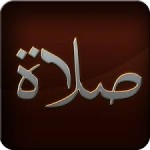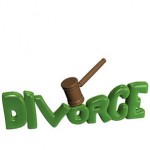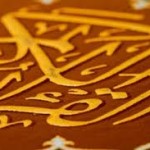Haram Medicine
Shortened Question:
Is it permissible to consume gelatine capsules?
Question:
What is permissible when it comes to capsules for medicine? Sometimes, as a healthcare worker, we are unable to ascertain what kind of gelatine is used in making the capsule, is it then allowable for us to prescribe such medication and as a Muslim in an area with little availability of halal alternatives (like vegetarian capsules) would it be acceptable for a sick Muslim to ingest such medications when sick, even if the person is not yet suffering from a life threatening illness but treatment is necessary? Jazak Allah
Answer:
In the Name of Allah, the Most Gracious, the Most Merciful.
As-salāmu ‘alaykum wa-rahmatullāhi wa-barakātuh.
It is impermissible for a Muslim to use or prescribe capsules with gelatine from unlawful means[1].
However, it is permissible to consume or prescribe medicine containing unlawful ingredients when a reliable physician confirms that the patient can only be cured by it and that the treatment is not possible by any other alternative lawful means.[2]
And Allah Ta’āla Knows Best
Hanif Yusuf Patel
Student Darul Iftaa
UK
Checked and Approved by,
Mufti Ebrahim Desai.
References
[1] [Fatawa Mahmudiyyah, 18: 350, Dar al-Iftaa Jamiah Faruqiyyah Karachi]
قال: "ولا بأس بالحقنة يريد به التداوي" لأن التداوي مباح بالإجماع، وقد ورد بإباحته الحديث. ولا فرق بين الرجال والنساء إلا أنه لا ينبغي أن يستعمل المحرم كالخمر ونحوها؛ لأن الاستشفاء بالمحرم حرام.
[Al-Hidayah, 4: 381; al-Ināyah Sharh al-Hidāyah, 10: 67]
وَقَوْلُهُ (إلَّا أَنَّهُ لَا يَنْبَغِي أَنْ يُسْتَعْمَلَ الْمُحَرَّمُ كَالْخَمْرِ وَنَحْوِهَا لِأَنَّ الِاسْتِشْفَاءَ بِالْمُحَرَّمِ حَرَامٌ) قِيلَ إذَا لَمْ يَعْلَمْ أَنَّ فِيهِ شِفَاءً، فَإِنْ عَلِمَ أَنَّ فِيهِ شِفَاءً وَلَيْسَ لَهُ دَوَاءٌ آخَرُ غَيْرُهُ يَجُوزُ لَهُ الِاسْتِشْفَاءُ بِهِ. وَمَعَ قَوْلِ ابْنِ مَسْعُودٍ - رَضِيَ اللَّهُ عَنْهُ -: إنَّ اللَّهَ لَمْ يَجْعَلْ شِفَاءَكُمْ فِيمَا حَرَّمَ عَلَيْكُمْ. يُحْتَمَلُ أَنَّ عَبْدَ اللَّهِ قَالَ ذَلِكَ فِي دَاءٍ عُرِفَ لَهُ دَوَاءٌ غَيْرُ الْمُحَرَّمِ، لِأَنَّهُ يُسْتَغْنَى بِالْحَلَالِ عَنْ الْحَرَامِ. وَيَجُوزُ أَنْ يُقَالَ: تَنْكَشِفُ الْحُرْمَةُ عِنْدَ الْحَاجَةِ فَلَا يَكُونُ الشِّفَاءُ بِالْحَرَامِ وَإِنَّمَا يَكُونُ بِالْحَلَالِ.
[Ad-Durar al-Mubāhah, p.44]
5 [126 4] إلا الخنزير فإنه نجس العين، فلا يجوز الانتفاع به فكذا لا يجوز بيعه.
Tabyīn al-Haqā`iq Sharh Kanz ad-Daqā`iq wa Hāshiyah al-Shilbī
5 [2064 4] قال أبو جعفر الخنزير محرم العين لا يجوز الانتفاع به في حياته ولا بعد موته ألا ترى أنه لا ينتفع بجلده وإن دبغ وكذلك شعره
[Mukhtasar Ikhtilāf al-Ulamā
[Jadid Fiqhī Masā`il, 1: 225; 5: 43; Fatwa Mahmūdiyyah, 18: 355]
[2] فإن الاستشفاء بالمحرم إنما لا يجوز إذا لم يعلم أن فيه شفاءً؛ أما إذا علم أن فيه شفاء، وليس له دواء آخر غيره فيجوز الاستشفاء به
[Al-Muhīt al-Burhānī, 7: 82, Idārah al-Qur`an; 6: 116, Maktabah Gaffariyah Kuwaitah]
[Imdād al-Ahkām, 4: 319, Maktabah, Dar al-Uloom Karāchi; Fatawa Mahmūdiyyah, 18: 349, Dar al-Iftaa Jamiah Faruqiyyah Karachi]
يجوز للعليل شرب الدم والبول وأكل الميتة للتداوي إذا أخبره طبيب مسلم أن شفاءه فيه ولم يجد من المباح ما يقوم مقامه وإن قال الطبيب يتعجل شفاك فيه وجهان
[Al-Fatawa al-Hindiyyah, 5: 355, Maktabah Rashidiyyah; ad-Durr al-Mukhtar ma`a Radd al-Muhtar, 6: 389, H. M. Saeed Company]
وقد وقع الاختلاف بين مشايخنا في التداوي بالمحرم ففي النهاية عن الذخيرة الاستشفاء بالحرام يجوز إذا علم أن فيه شفاء ولم يعلم دواء آخر اهـ.
وفي فتاوى قاضي خان معزيا إلى نصر بن سلام معنى قوله - عليه السلام - «إن الله لم يجعل شفاءكم فيما حرم عليكم» إنما قال ذلك في الأشياء التي لا يكون فيها شفاء فأما إذا كان فيها شفاء فلا بأس به ألا ترى أن العطشان يحل له شرب الخمر للضرورة اهـ.
[Al-Bahr ar-Rā`iq Sharh Kanz ad-Daqā`iq wa Minhat al-Khāliq wa Takmilat at-Tūri, 1: 122
[Fiqhī Maqālāt, 4: 144, Memon Islamic Publishers]
While it impermissible to seek cure with harām means according to Imam Abu Haifah; Sahibayn (Imam Abu Yusuf and Imam Muhammad) allow the consumption of harām for treatment.
(قوله: ولا يشرب أصلا) أي بول ما يؤكل لحمه لا يشرب أصلا لا للتداوي ولا لغيره، وهذا عند أبي حنيفة وقال أبو يوسف يجوز للتداوي؛ لأنه لما ورد الحديث به في قصة العرنيين جاز التداوي به، وإن كان نجسا وقال محمد يجوز شربه مطلقا للتداوي وغيره لطهارته عنده ووجه قول أبي حنيفة - رحمه الله - أننجس والتداوي بالطاهر المحرم كلبن الأتان فلا يجوز فما ظنك بالنجس؛ ولأن الحرمة ثابتة فلا يعرض عنها إلا بتيقن الشفاء وتأويل ما روي في قصة العرنيين أنه - عليه السلام - عرف شفاءهم فيه وحيا ولم يوجد تيقن شفاء غيرهم؛ لأن المرجع فيه الأطباء وقولهم ليس بحجة قطعية وجاز أن يكون شفاء قوم دون قوم لاختلاف الأمزجة حتى لو تعين الحرام مدفعا للهلاك الآن يحل كالميتة والخمر عند الضرورة؛ه
[Al-Bahr ar-Rā`iq Sharh Kanz ad-Daqā`iq wa Minhat al-Khāliq wa Takmilat at-Tūri, 1: 121-2; Al-Mabsūt li al-Sarakhsī (bāb al-wudhu al-ghusl), 1: 54]
The Hanafi jurists have rendered the fatwa on the permissibility of tadāwi bi al-muharram based on the view of Imam Abu Yusuf. It seems that it is permissible according to him without any condition of `only in the absence of any other alternative means`. However, our jurists have tied the view of Imam Abu Yusuf with the stipulation that there is no other halāl alternative. [Fiqhī Maqālāt, 4: 147, Memon Islamic Publishers]
DISCLAIMER:
The Ask Our Imam site hopes to respond to queries relating to Islamic law. It is not an Islamic Law Shari`ah Court. The questions and answers found on this website are for educational purposes. However, many of the rulings rendered here are distinct to the specific scenario and thus should be read in conjunction with the question and not taken as a basis to establish a verdict in another situation or environment. This site bears no responsibility in these responses being used out of their intended context, nor to any party who may or may not follow the responses given and is being hereby exempted from loss or damage howsoever caused. None of the responses rendered may be used as evidence in any Court of Law without prior written consent of Our Imam. Any reference to another website or link provided in our responses or article should not be taken as an endorsement of all the content on that website; in fact, it is restricted to the particular material being cited.
Posted in Halaal & Haraam on 18th Feb 2016 by Our Imam | 1424 Views







